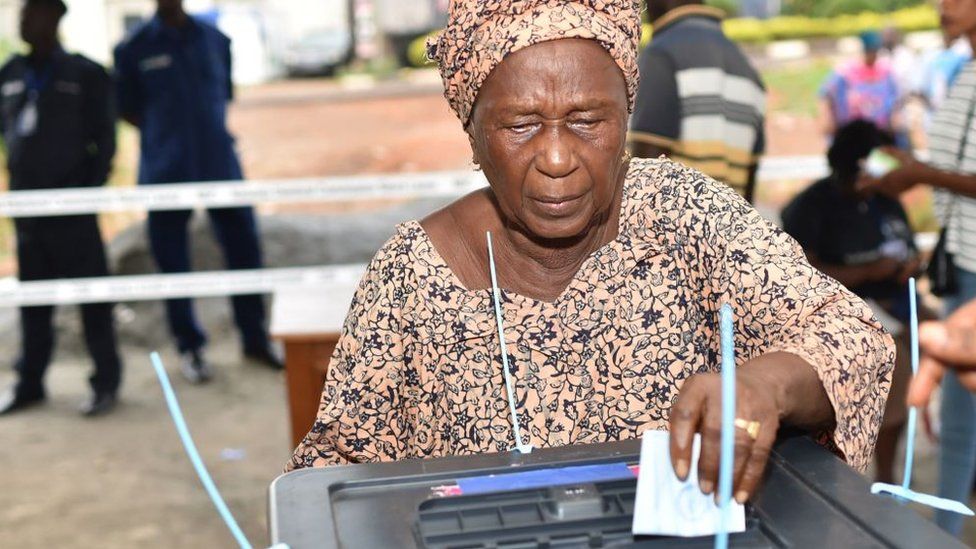Following a tense, violent campaign, Sierra Leoneans are getting ready to cast their votes in the general election.
The main opposition party claimed on Wednesday that one of its supporters had been shot and killed by police, a claim that has been refuted by the police.
Opponents have allegedly been attacked by both major party supporters.
An unstable economy, escalating living expenses, and worries about maintaining national cohesion are all factors influencing this election.
In the country of West Africa's fifth election since the end of its civil war in 2002, voters will select a president, members of parliament, and councilors.
According to Marcella Samba Sesay, chairperson of the NGO National Elections Watch, the country's elections have a history of being largely peaceful, free, and credible despite the estimated 50,000 lives lost during the 11-year conflict.
The 3.3 million registered voters have a high level of party loyalty, so instead of articulating and debating policy issues, the campaigns have centered on bolstering their party bases.
A second five-year term as president of Sierra Leone is being sought by 59-year-old Julius Maada Bio of the SLPP. Dr. Samura Kamara, 72, of the All People's Congress (APC), is his main rival among the 12 opponents.
This race is a rematch of the one from 2018, when Mr. Bio narrowly prevailed after a run-off in the second round.
According to the West Africa Network for Peace-building Sierra Leone, there has been an increase in violence compared to five years ago. Since April, 109 violent incidents have been recorded.
The APC reported this week that a security force shooting resulted in the death of one person as APC supporters gathered for a protest at the party's headquarters in Freetown on Wednesday.
The shots, according to the police, were fired in the general direction of the APC building.
Additionally, Dr. Kamara claimed that his motorcade was attacked, and last weekend, there were rumors that the APC office in the city of Bo was set ablaze.
The SLPP has claimed that it has also come under attack in strongholds of the opposition.
"Peaceful elections" and "no violence" are the president's requests. The reported occurrences of violence and intimidation in some areas of the country have alarmed the African Union.
The rhetoric of campaigners has alarmed Sierra Leoneans, according to the Reuters news agency.
"Peace is all I desire. Political extremists on both sides are displaying a high level of hatred on social media, which frightens me, a Freetown student who wished to remain anonymous told Reuters.
A significant law mandating that women hold 30% of all positions in the public and private sectors, including in parliament, was passed months before this election.
The next parliament, however, is likely to fall short of this, according to research from the Institute for Government Reform (IGR) of Sierra Leone.
Parties have proposed lists of candidates running in each district of the nation to be chosen using a proportional representation system. But according to the IGR, not enough women are listed highly enough to ensure that the 30% threshold is reached.
Only one woman, the little-known Iye Kakay, is one of the 13 candidates running for president.
The APC has also voiced worries about the transparency of the counting procedure and questioned the ability of the electoral commission to conduct free and fair elections.
The commission defended itself by asserting that safeguards had been put in place to guarantee the legitimacy of the voting and counting procedure.
Within 48 hours of the polls closing, results ought to be available.
In order to be declared the winner of the presidential race, the front-runner must receive 55% of the total votes cast; otherwise, a run-off election will be held between the top two vote-getters.







